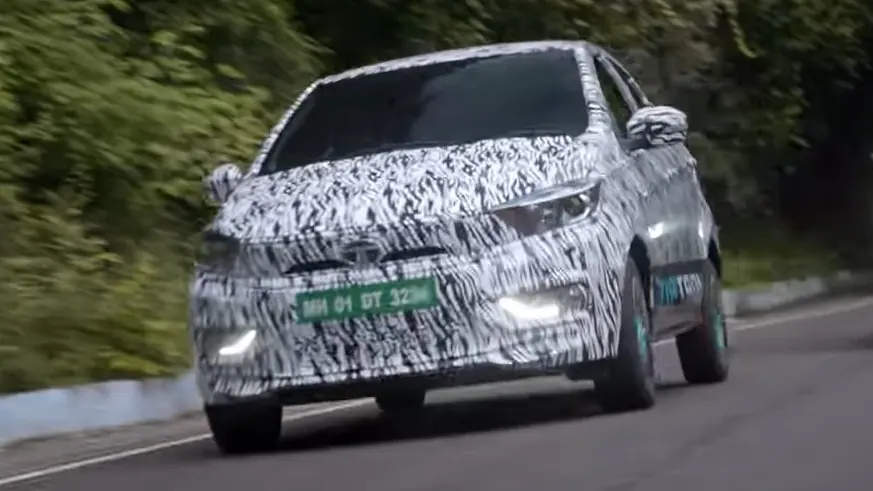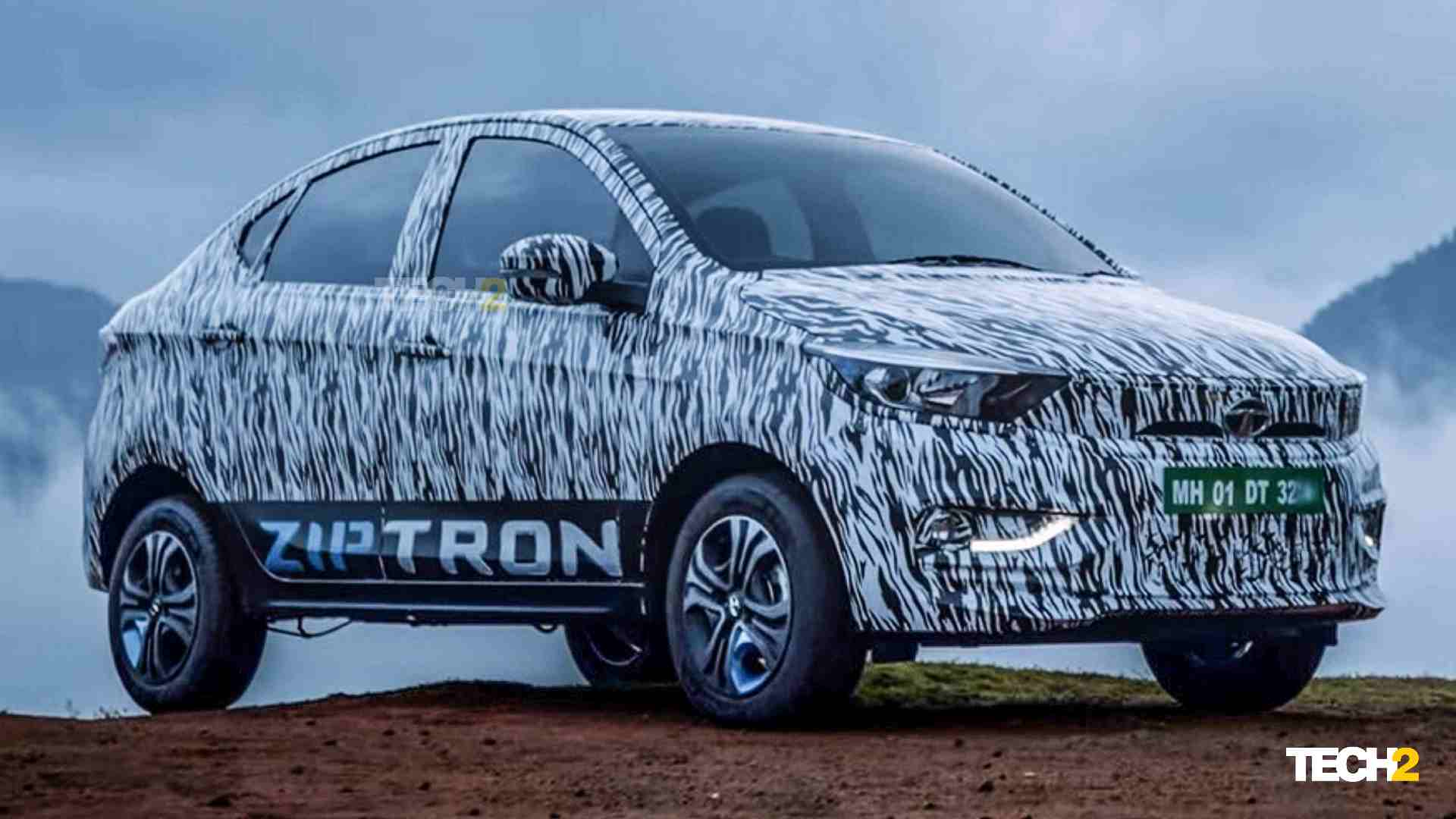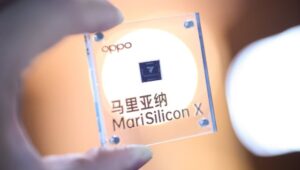tech2 News StaffAug 16, 2021 13:24:30 IST
It is official – the revamped Tata Tigor EV packing Tata Motors’ Ziptron technology will be revealed in full on 18 August, 2021. A few years ago, Tata had introduced the Tigor EV for government authorities and fleet buyers, and in 2019, it was also made available to private buyers, but found few takers because of its somewhat limited range and performance. However, Tata now promises to solve those concerns by rolling out a revamped Tigor EV with its Ziptron technology.
Technically, the Tigor EV was never discontinued – a few weeks ago, it was rebranded the Xpres-T, and positioned as a fleet-only offering. However, despite being facelifted, the electric compact sedan carried on with its older 72-volt architecture and 21.5 kWh battery pack. Tata’s Ziptron technology – which debuted with the Tata Nexon EV – packs in capabilities far superior to those of the Xpres-T’s powertrain.
Tata’s Ziptron-powered vehicles will come with a high-voltage 300+ volt permanent magnet synchronous electric motor, which is leagues ahead of the 72-volt AC induction-type motor on the Tigor EV in terms of performance. In the Nexon EV, Tata fitted a larger 30.2 kWh lithium-ion battery pack, and while it isn’t known as yet if the Tigor EV will have a similar-size battery, but if it does, it’s clear that its range will be much higher than the Xpres-T’s 213 km claimed range, and likely to clear the 300 km mark. Tata Motors had previously revealed Ziptron vehicles will have a range of at least 250 kilometres, so the new Tigor EV’s range will certainly breach that figure.
The new Tata Tigor EV’s performance will also be a leap and a half over that of the Xpres-T. Its motor is likely to put out over 120 hp and 240 Nm of torque, which should bless the Tigor EV with a 0-100 kph time of under 10 seconds, and a top speed in excess of 100 kph. What’s more, Ziptron technology will enable the Tigor EV to be fast-charged from 0 to 80 percent in about an hour’s time; a significant improvement over the Xpres-T, which takes about double that time.
The icing on the cake will be the CCS2 charging standard the Tigor EV will follow, which will grant it access to India’s rapidly-expanding EV fast-charging network. And to top it off, the Tata Tigor EV is likely to undercut the Tata Nexon EV on price, which currently is priced from Rs 13.99 lakh to Rs 16.85 lakh (ex-showroom).
The launch of the new Tata Tigor EV is likely to take place in the coming weeks, and it is an opportune time, as several states – including Maharashtra and Gujarat – have rolled out lucrative incentives for EV buyers. Maharashtra, in particular, is currently offering a subsidy of as much as Rs 2.5 lakh for electric cars and SUVs, which the new Tata Tigor EV is likely to benefit greatly from.












